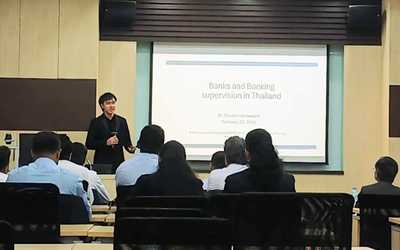Who is Nudgeable?: Cognitive Ability as a Moderating Factor on the Impact of Nudges on Financial Decisions

Nudge is one of the policy tools that helps steer sound financial behaviour. Cognitive abilities also contribute positively to sound financial decision-making. This study explores whether the cognitive ability is a moderating factor of nudge effectiveness. Would nudges have the same marginal effects across people of low and high cognitive abilities? Which nudge policies make individuals with different cognitive abilities behave better regarding looking after their finances by saving more and delaying gratification? Two experimental studies (total N = 848) explore both directions of nudges - helpful and harmful. The findings reveal that individuals with lower cognitive ability, as measured by cognitive reflection test, tend to be more nudgeable in the direction that is assumed to be harmful to themselves (i.e., to save less and not to delay gratification), specifically in the norm-nudge intervention. The implication is that consumer protection policy focuses more on particular subgroups that are more sensitive to being nudged in a harmful direction.








